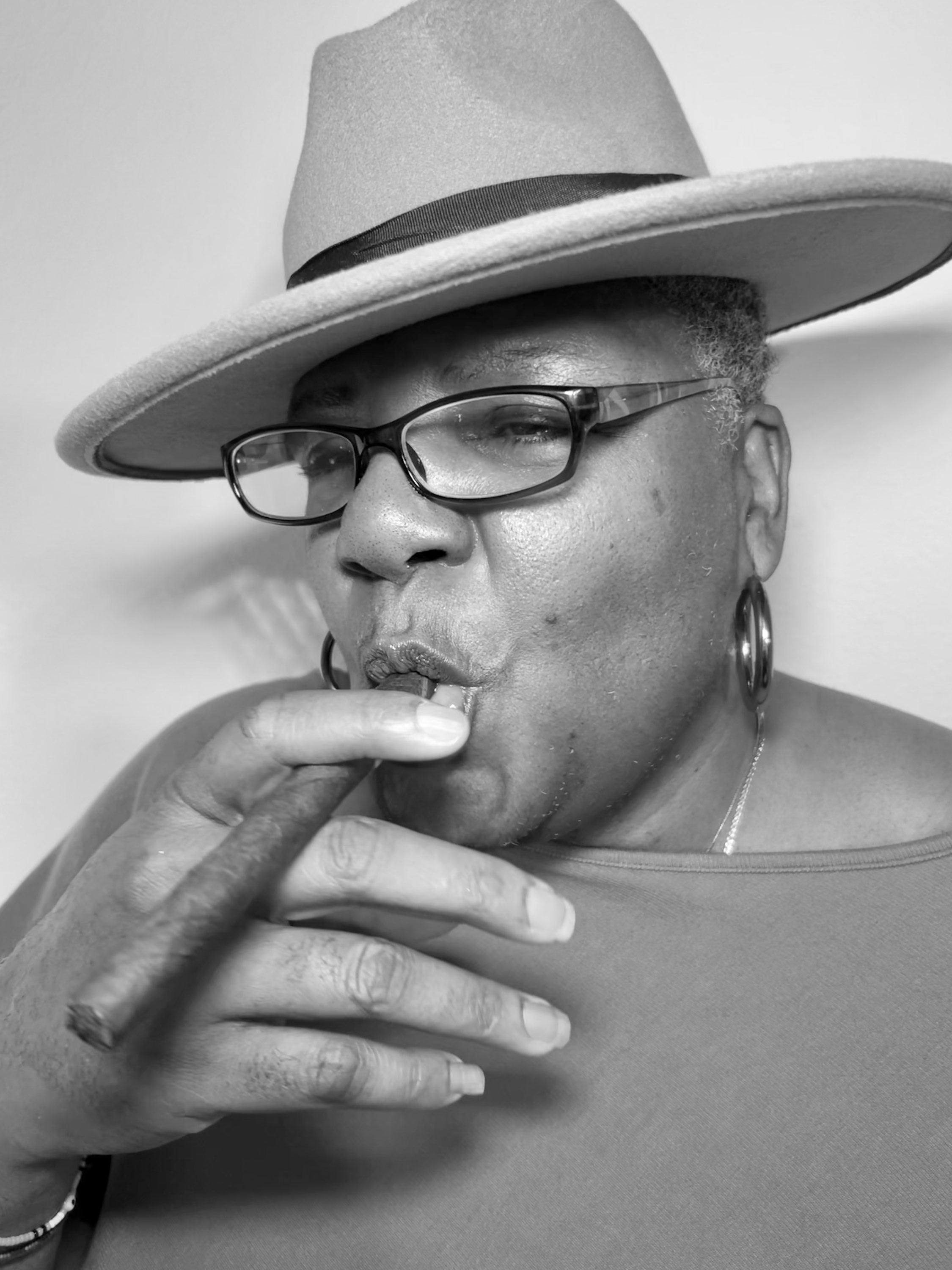What Slutty Vegan's Comeback Teaches About Brand Exit Strategy
- Brandma
- Apr 4
- 4 min read
Building for the spotlight is easy, it's the exit strategy you miss

Let’s get into it.
Pinky Cole Hayes, founder of Slutty Vegan, author of I Hope You Fail, and now low-key queen of the comeback, recently had a "Final Destination"-level reality check. While driving the speed limit, a fuck'n mattress flew through her windshield and there was no exit strategy in sight.
Now that could've been the end of the story. But for Pinky, it was the beginning of Slutty Vegan 2.0 and a living, breathing lesson in what I call The Exit-Minded Habit.
Because truth be told? She didn’t just survive a freak accident. She had already watched her business collapse under the weight of a $10 million overhead nut. She admitted she wasn’t hands-on in operations. And like too many Founders chasing scale, she assumed structure would hold without her steering the wheel.
Spoiler: it didn’t.
But instead of begging the public for sympathy or clout, she did something most folks would avoid at all costs. SHE LET IT GO! She handed Slutty Vegan over to an assignee, disappeared for a minute, and went into strategy mode.
That, Brandbabies, is what the Exit-Minded Habit is all about.
The Exit Habit vs. The Acquisition Habit: Two Sides of the Same Branding Coin
In my recent piece about buying and selling to the wrong one, I broke down how brands like Ben & Jerry’s get stuck when their parent companies stop vibe'n with the mission. When Unilever acquired Ben & Jerry’s, everything seemed like unicorns and rainbow. But over time, that Acquisition Habit turned into rainbow shit because the corporate priorities couldn’t hold space for the brand’s original activist DNA.
So what happens when you don’t even get to that level of acquisition? What happens when you build a brand that wasn’t ready for anyone else to hold the wheel?
That’s where Pinky’s story slides into the mix.
She didn’t lose Slutty Vegan to another company.
She lost it because the business outgrew the backend.
Because her personal brand was the engine and the brakes.
Because there was no Exit Habit embedded in the build.
This is the other side of the same coin.
💡 The Acquisition Habit = Knowing who you’re partnering with and why.
💡 The Exit-Minded Habit = Building so it can run without you—even if you never leave.
💡 The Licensing Habit = Retaining ownership while letting others bring in profits for your brilliance.
Ben & Jerry’s had an acquisition deal (one that’s now unraveling). Pinky didn’t have exit infrastructure, but now she’s circling back and rebuilding with all three habits in mind.
A Moment of Control: “Ain’t Nobody Coming to See You, Otis.”
After the restructure, Pinky bought her brand back under a new company name; “Ain’t Nobody Coming to See You, Otis LLC.” IYKYK
Now if that don’t scream Separation + Soulful Strategy, I don’t know what does.
She didn’t just buy it back. She's rebranding what she's calling "Slutty Vegan 2.0" as she and the business behind the scenes with an all to familiar knowing, that Slutty Vegan was never about just the food. It was, and is, about her. Her face. Her story. Her community-building genius.
But here’s where the Licensing Habit comes into play.
Pinky is no longer trying to touch every piece of the business herself. Ohp! is that the Delegation Habit peeking through? She’s plotting international expansion, licensing opportunities, and partner-owned Slutty Vegan locations. She’s moving from being the face of the hustle to owning the framework others can buy into.
This story has at least half of The Brand Habits just show'n off.
Ben & Jerry’s could’ve benefited from that kind of licensing model as a way to retain soul without selling it to a capitalistic system. But once Unilever took ownership, autonomy became a negotiation.
That’s why the Licensing Habit isn’t just a growth strategy, it’s an ownership strategy.
Here's the Lesson for Micro-Insurgent Brands
If you’ve built your brand on being loud, loved, and leaderless behind the scenes… you’re playing a dangerous game.
You don’t have to be Unilever or Ben & Jerry’s to get caught up in a values mismatch. You can be a micro-insurgent brand who ends up over-leveraged and under-documented, with a business that can’t survive without your every move.
That’s why an Exit-Minded Habit matters. It’s not about leaving. It’s about having the option to leave. It’s about building with systems, documenting your brand’s DNA, and creating pathways that allow your brand to outlive your burnout.
When the spotlight dims, or a fucking mattress flies through your windshield, you need a brand that can still stand without you having to step in. That’s where the Licensing Habit kicks in:
✔ Keep your name
✔ Keep your philosophy
✔ Let others carry the legacy
And the Legacy Habit makes five.
Whether you're negotiating an acquisition like Ben & Jerry’s, licensing your sauce like a Sweet Baby Ray's, or rebirthing your brand like Pinky Cole, here's what you better know:
The Acquisition Habit protects values when someone else is investing in it.
The Exit-Minded Habit prepares the brand to thrive without you.
The Licensing Habit lets the brand scale without being for sale.
These are brand habits, the provide freedom to live the life you want.
Because when the spotlight dims, you don’t want a brand that needs CPR. You want a brand that knows how to breathe on its own.
🔥 Want to learn how to embed these habits into your brand from Day One?
The Brand Habit Playbook drops April 15.














Comments